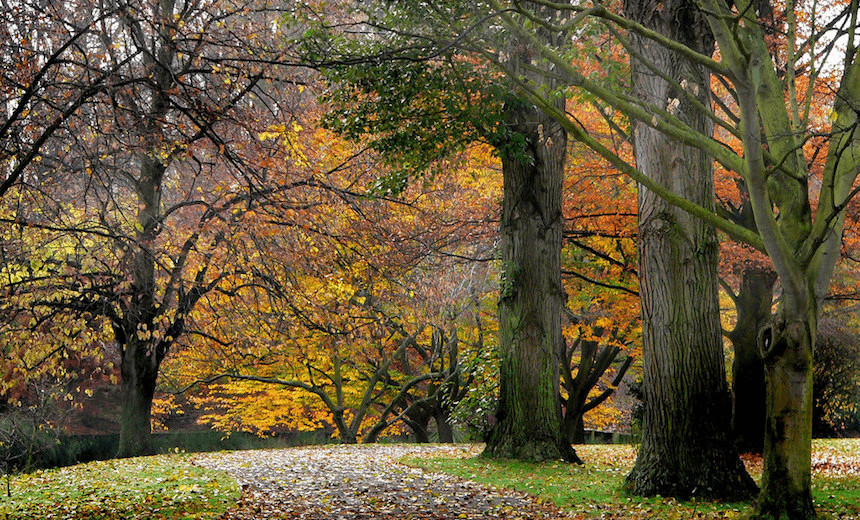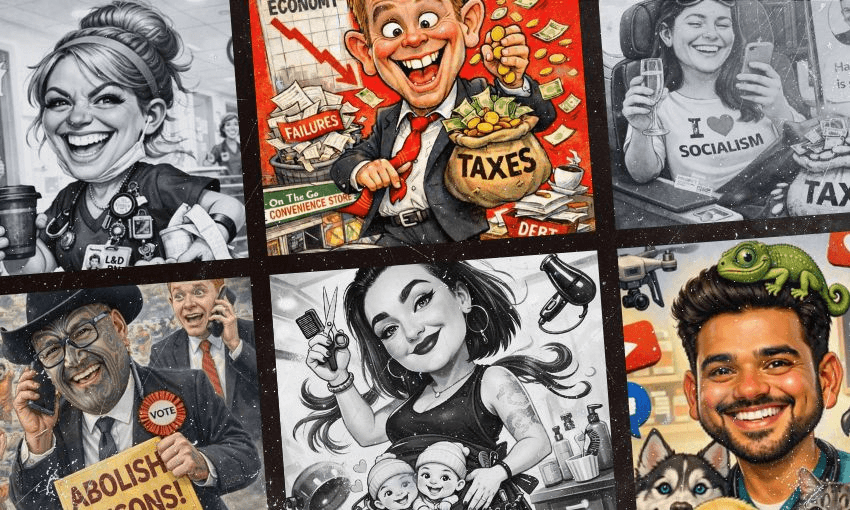Charles Arthur Allen Aberhart was 37 when he died in 1964, the victim of a gay hate crime that would later inspire the New Zealand homosexual law reform movement. His relative Nicole Skews-Poole tells his story.
Content note: This article includes a description of homophobic violence.
Under layers of Holden memorabilia and orange-toned photos of kids in short shorts, I knew my family had quiet pockets of queerness.
There was the time my dad told my mum he “wasn’t sure” about his sexuality, or my mythical fifth cousin who had three daughters and “there was something wrong with each of them: One was a lesbian…”
But my bisexuality, though rarely talked about, was unique. Because I’m married to a man I’d always been worried I’d unnecessarily antagonise someone if I pointed out my queerness in the context of my family. It’s a massive contrast to how loudly queer I am in my community and the divide had always made me feel cowardly.
I had wished, until now, that my family had more queerness.
*
A Facebook chat popped up. It was my mum.
“I’ve just been talking to [your] nana, and she told me Poppa had a first cousin who was killed for being gay. He was walking through Hagley Park in Christchurch on the way home and got beaten to death.”
His name was Charles Arthur Allen Aberhart but he went by Allen. He was 37. He worked as a manager in a drapery store in Blenheim, where most of my maternal family settled, and he’d gone to Christchurch to visit a friend. It was January 23, 1964.
A few months earlier he spent time in prison after being convicted under the law forbidding homosexual acts. It was called “indecent assault” despite being consensual.
While in Christchurch he decided to visit a known cruising spot, the public toilets by by Little Victoria Lake in Hagley Park. He drove alone to the Armagh Street entrance, parked his car and went in.
That same evening, six teenagers – Zane Leslie McDonald, 15; Anthony Dennis O’Connor, 15; Frank Leicester Reynolds, 16; Raymond Clive Neither, 16 or 17; Brian Francis Johns, 17; and Roger Malcolm Williams, 17 – decided to go to Hagley Park “to belt up a queer” using Reynolds, who looked the youngest, as bait.
Allen didn’t know that there’d been recent queer-bashings in Hagley Park. Some gay men sitting in their cars outside the park saw him go in, but nobody thought to warn him because they didn’t know him.
Reynolds and O’Connor approached three different men in the toilet. The first threatened them with scissors and they backed off. The second and third banded together and left. Then they found Allen.
Thinking they were genuine, Allen engaged with them and talked about possible sexual acts (a detective would later refer to “these disgusting phrases” rather than quote them). Then Reynolds and O’Connor took him to the rest of the group. They started to abuse him.
Allen called out to a passer-by who was walking his dogs and asked him to call the police. He just told them all to go home.
Allen tried to offer to buy them all a cup of coffee, or some fish and chips, if they’d let him go. They didn’t.
His body was found the next day with bruised arms and a broken nose, consistent with being held while he was punched. He had died from a blow to the face and a subsequent brain haemorrhage, possibly because the bony plates above his eye sockets were abnormally thin and had caved in easily. The six boys were arrested the following day.
Their trial lasted five days. Before the all-male jury retired, the judge reminded them: “It is not necessary for the Crown to prove that each or all the accused struck the blows that killed Mr Aberhart. Those who did so were parties to the offence, and the remainder could also be parties.”
In one of the only acknowledgements that homophobia was wrong, rather than a defence, the judge also said: “The man who died might have had homosexual tendencies, but he had a right to live.”
But after seven hours of deliberation, the jury found all six boys not guilty of manslaughter.
He was buried back home in Blenheim.
While most of the mainstream media ignored the story, some newspapers, notably The Christchurch Press, reported it. They received an influx of letters from readers who were mostly interested in debating whether jury trials were still relevant.
Then the Listener made it the subject of an editorial, a move which historian Tony Simpson says prompted the case to “enter liberal folklore”.
“At the centre of the case…was the assumption that the dead man was a homosexual….The six youths who went in search of “queers” were not moved by moral indignation: they were looking for excitement, and believed their victim to be fair game….an alleged homosexuality has been felt to be an offence which mitigates a crime. And the crime itself came out of an unhealthy concern with sexual deviation.”
– Listener editor Monte Holcroft, June 5, 1964
“It was one of those events that set the political action in motion, and probably the first time that the public had reacted in this way” said queer historian and filmmaker Toni Keevil. According to Dr Alison Laurie, former Gender and Women’s Studies programme director at Victoria University, the case was a key focus of the Dorian Society, New Zealand’s first organisation for homosexual men, which would later become the New Zealand Homosexual Law Reform Society.
*
I’ve spent the last two days since I found out, mentally composing glib tweets like:
“That feel when you wish there was another queer in your family and then you find out your cousin was killed in a hate crime.”
Or:
“That feel when your family is boring and then you find out your cousin’s death helped spark homosexual law reform in New Zealand.”
*
Since learning about my cousin Allen, I’ve spent a lot of time researching his death. Every time I read that he offered to buy his attackers fish and chips and coffee, I burst into tears.
I can’t wrap my head around articles that say “Charles Aberhart’s murder on the 23rd January 1964 is considered by some to be a catalyst for the gay liberation movement” and that I am gay and liberated and the person they’re talking about is my cousin.
I don’t understand how my nana, who was 23 at the time of his death and remembers her father talking about it, didn’t mention it until now. We’re close and she knew I worked on the Marriage Equality campaign.
I want to find a photo of him and put it on my wall of ancestral photos and talk to my son about him.
I want to find his grave in Blenheim. I want to take the tiny rainbow flag I bought when I went to San Francisco Pride and tuck it into the earth.
I want to sit on the grass and tell him someone he’s related to is queer too and that I’m safe and happy. I want to tell him I was at Parliament when gay marriage was made legal. I want to tell him that homosexual law reform happened the year I was born.
I want to tell him that it happened because of him.
The Society section is sponsored by AUT. As a contemporary university we’re focused on providing exceptional learning experiences, developing impactful research and forging strong industry partnerships. Start your university journey with us today.



